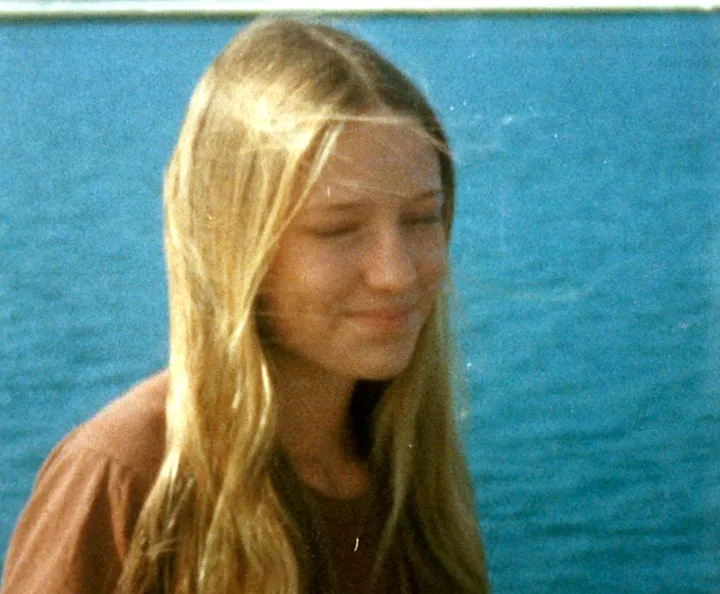It has taken me decades to be ready to tell this story. Until I reached the safety of adulthood and created my own family, I wasn’t able to confront my parents’ story about my past. In their telling, I was “privileged.” After all, I grew up on a beautiful boat called Wavewalker, sailing around the world.
Of course I knew their story wasn’t true. Although I had grown up on Wavewalker from the age of 7 for almost a decade, I was trapped there — unable to go to school or have friends. While my brother was allowed to help out on deck, I was expected to cook and clean down below for hours each day.
My normal life in England ended when I was 6 years old and my father announced that we were going to sail around the world. He wanted to recreate Captain Cook’s third voyage, which would take three years. This was a long time — but we would be back, he promised, before I was 10. That meant that even though I was leaving my best friend Sarah, my beloved water spaniel Rusty, and my dollhouse behind, they would all be waiting for me when we returned.
Except that wasn’t what happened. We set sail from England a year after that announcement, and it was a decade before I returned alone at the age of 17. Most of the time in between I lived on Wavewalker and was unable to go to school. We often ran out of fresh food — and sometimes almost ran out of water ― on longer voyages. When that happened, we relied on canned and dried food, and my father allowed us each a cup of water a day for drinking and washing.

One of the challenges of my childhood, I grew to understand, was that my parents’ narrative looked true — we seemed to be living a privileged life by being able to sail to gorgeous places like Vanuatu and Fiji in the South Pacific. But the reality was very different.
For a start, I learned early on our voyage how dangerous the ocean could be. A few months after we left England, we were hit by an enormous wave when my father attempted to cross the Southern Indian Ocean accompanied only by two novice crew members, my mother (who didn’t like sailing) and his two small children. I fractured my skull and broke my nose in that accident and had to endure multiple head operations without anesthesia on the small atoll that we eventually found in the middle of the ocean.
But my life on Wavewalker wasn’t just physically dangerous. Living on a boat for a decade meant that I could rarely have friendships, I had little or no access to medical care and I couldn’t attend school.
As I turned into a teenager, I had no private space. Instead I had to share the one working toilet we had on board with my family and up to eight or nine crew, and to share a cabin with adult crew members.
As the years went on, it became clear that my parents had no intention of fulfilling their promise to return home. I had no way of leaving the boat — I had no passport or money. But more than that, I had nowhere to go.
We’d set sail when I was a small child, and after that I never saw any of my relatives again. Apart from my parents, I had no other adults in my life apart from the crew members who came and went. The only people I saw in authority were the customs and immigration officials who boarded our boat when we arrived in each new country, and they never expressed any interest in the welfare of the two children they found there.
While Wavewalker represented freedom for my parents — they could pull up the anchor and sail away whenever they wanted — it was a prison for me.
I eventually realized that the only way I would ever escape Wavewalker was if I found a way to educate myself. I tried to convince my parents to let me go to school, and six years after setting sail, they finally agreed to allow me to enroll in an Australian correspondence school. I was 13 years old.
While it was clear to me that my only possible escape was through education, studying by correspondence on a boat was very difficult. By this time my father had turned our boat into a sort of “floating hotel” to pay for our endless voyage, and my parents wanted me to work rather than spending my days with my nose in my books.
There were also more practical issues. I had no postal address and I had no space in which to study apart from the one small table in our main cabin. Sometimes I would hide myself inside a sail at the front of the boat to study, knowing no one would come looking for me there. I had to fight my father for paper, which was an expensive commodity in the South Pacific. Whenever we reached a major port, I sent off the lessons I’d completed and asked the school to send them back to the post office at our next port of call, but if my father decided to change course, my lessons went astray.
I found the correspondence lessons very challenging, partially because I had missed a lot of education and because it was very difficult to learn remotely without being able to talk to a teacher. I knew, however, that I had no choice ― it was my only way out.
